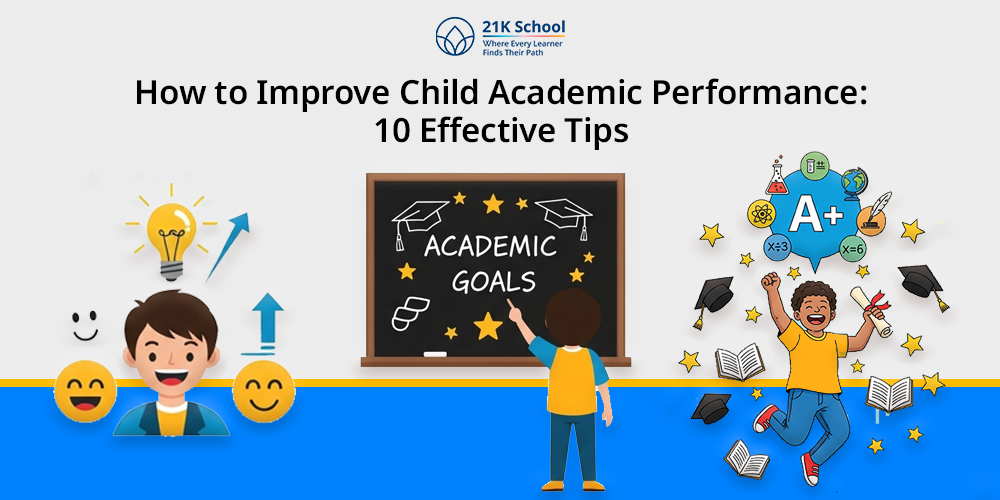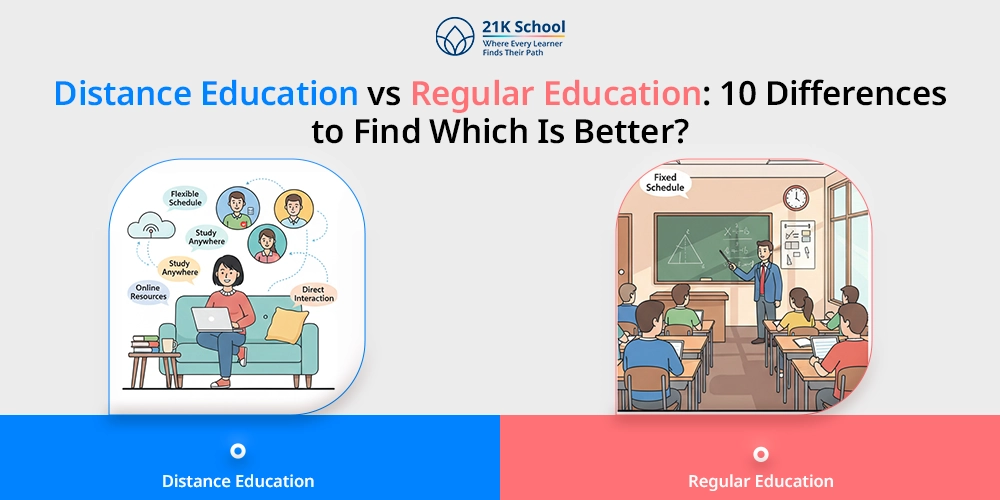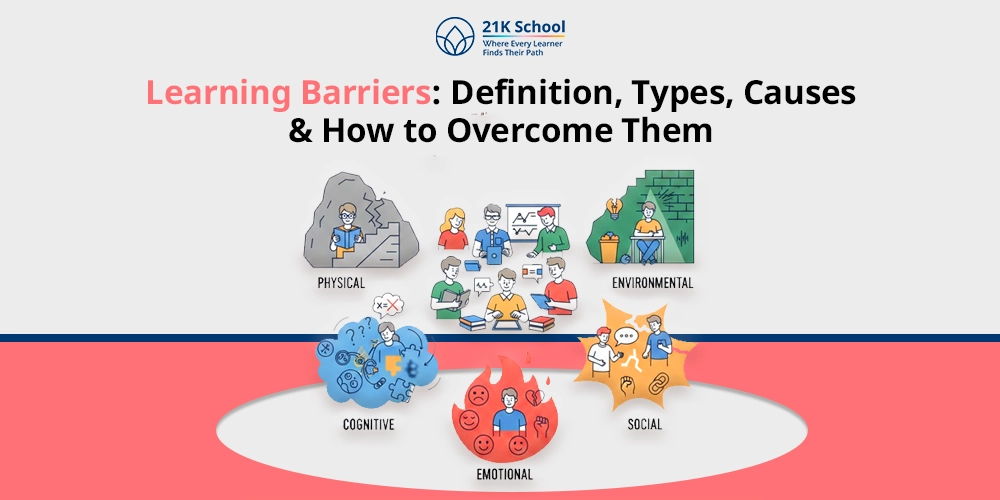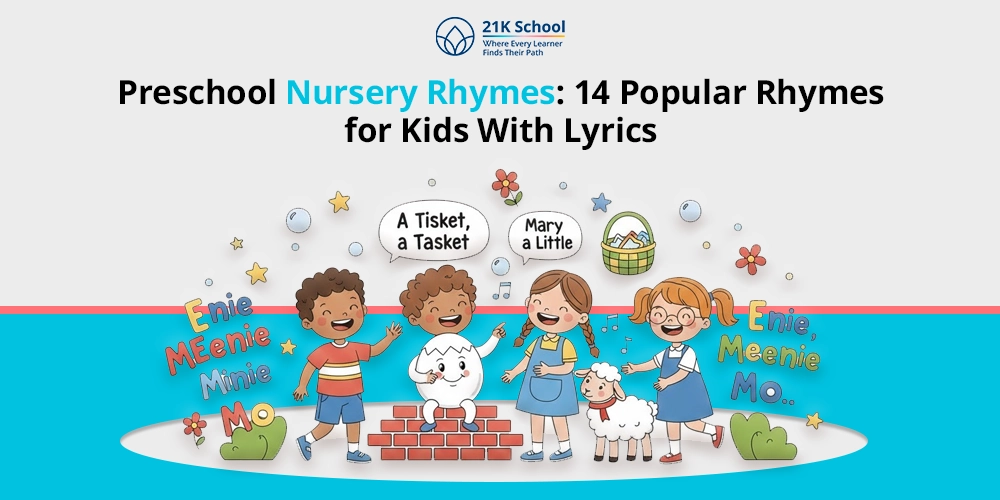
One of the proud moments for parents and teachers is a child’s academic success. However, to improve academic performance learners need to work hard.
As a parent or teacher one question always comes to mind: How to Improve Child Academic Performance?
With consistent effort, encouragement and support from parents and facilitators learners can achieve the desired goal.
Today’s education has become tougher and competitive with advanced technology that ensures better future and career growth if children work smartly.
To understand how you can improve child academic performance go through the top 10 proven ways.
Contents
How to Improve Child Academic Performance – Proven 10 Ways
The below mentioned 10 best proven ways on how to improve child academic performance like daily routine, communication, engaging environment and others:
1. Routine
Building a routine is the best way to ensure structured learning for children. Having a proper routine helps kids to balance everything.
From academic needs like studies, practical assessment and other educational activities to playtime, proper sleep, food etc.
A well-structured study routine can reduce exam stress and build confidence , discipline, focus and retention in children.
Instead of forced learning it creates a habit to do everything on time whether it is academic or personal needs.
2. Communicate With Teachers
Communication plays a key role in each individual’s life whether it’s a young kid or an adult.
By improving communication one can enhance academic performance. Parents and facilitators’ interaction help to discuss kids’ needs.
By this way one can understand the strengths and weaknesses to guide them towards the right path.
At home and school, a positive learning environment can create new opportunities and open communication to support learners’ education.
Learn how to improve academic performance of weak students
.
3. An Engaging Environment
Distractions in the classroom can be a big challenge for academic growth. Create an engaging learning environment for kids to learn in a peaceful and interactive way.
Distraction-free or clutter-free environments make a huge difference in children’s learning.
To do so, set up a study area with essential resources like a stationary, internet, laptop, or computer to watch educational videos etc.
One can also add motivational quotes, posters, daily tasks, sticky notes on walls or progress charts to encourage their efforts and success.
4. Motivating Your Child
In students’ lives motivation helps them to improve a child’s academic performance and leads to good grades in exams . Remember, to celebrate their work even small successes.
Giving rewards can be a good way for example, take them in the park or favorite treat and let them know the importance of hard work.
This connection and collaboration ensures happy learning instead of a stressful environment.
5. Set Academic Goals
Setting proper academic goals for learners helps them to stay focused and become responsible to complete tasks on time.
However, remember to give appropriate goals. For example, after completion each task gives a short break, breaks tasks into small parts and measures the achievement to motivate.
One can also ask kids to set their own goals so they can become responsible and independent for their own learning.
6. Encourage Active Learning
To encourage active learning in the classroom teachers use various teaching strategies that help children to improve their performance.
For example, interactive sessions, smart classrooms , digital tools etc are used. Other ways like puzzles, quizzes and flashcards etc.
Gaining practical experiences can also develop curiosity among students and make education more enjoyable .
7. Stay Connected With Teachers
Kids in classroom learning are always surrounded by teachers but sometimes they need some extra support.
They can also ask doubts or other questions to teachers or facilitators which enhance connection and communication.
Parents and teachers’ regular meetings can also identify how kids are progressing in the classroom and home.
8. Tutor Your Child
Many parents look for different ways to improve their child’s academic performance. Hiring a professional who helps children outside the school is a tutor.
Parents can hire online or offline tutor who provide target educational support.
Some key points to consider before hiring include looking for an experienced and qualified tutor, asking trusted recommendations, monitoring your childs development and progress reports.
9. Communicate With Your Child
Sometimes regular monitoring can’t determine the real challenge or problem a child is facing related to learning. It is important to communicate with your child to understand better.
Open communication with children not only guides them to find solutions but also strengthens the parents-child relationship and makes them comfortable.
Ask them about school day experience, encourage them to share problems and offer support to resolve them.
10. Develop a Schedule and Healthy Habits
To improve academic performance children must develop a study schedule and healthy habits.
Individuals with healthy habits stay focused, confident and effectively retain knowledge for a longer period. By encouraging them to sleep well, take proper meals and stay hydrated is important.
Healthy habits are not for one day continuity ensures a strong mind and body, creating the foundation for academic success.
Role of Parents and Teachers to Improve Child Academic Performance
Parents and teachers play different roles by providing guidance, support and role models to ensure kids are engaged and comfortable to learn.
Some common role such as:
1. Guiding Without Pressuring
Unrealistic pressure can increase stress, anxiety and burnout which can affect academic performance.
Parents must have gentle encouragement that can increase interest and curiosity to learn without stress.
2. Being Role Models for Discipline and Curiosity
One should become role models to showcase discipline and increase curiosity in children. But this way kids adapt good habits .
Give them tips to solve complex problems, set everyday routine or 21st century skill building.
3. Balancing Academic Focus with Creativity and Play
Balancing academic focus with creativity and play develops confidence, curiosity and excitement.
Fun learning activities like art, music, outdoor activities or sports which helps to learn problem-solving and teamwork.
4. Encouraging Active Participation
Instead of sitting alone, active participation in the classroom activities and tasks helps kids to explore different learning methods and how to stay focused.
5. Identifying and Addressing Learning Difficulties Early
Identifying and addressing learning difficulties like dyslexia, ADHD etc in the early stage can be beneficial for students’ education.
Teachers can provide special guidance and customised curriculum to students with learning difficulties to improve their academic performance.
Conclusion
Improvement of child academic performance is important for their better future and career opportunities. However, creating pressure is not a solution.
One must provide the right learning environment, build interest and provide support as a parent and teacher.
Above mentioned 10 proven ways to improve your child’s academic performance are effective to shape kids’ learning journey.
From building routines to encouraging active learning help children to improve in their academic grades and become confident, curious and strong.



